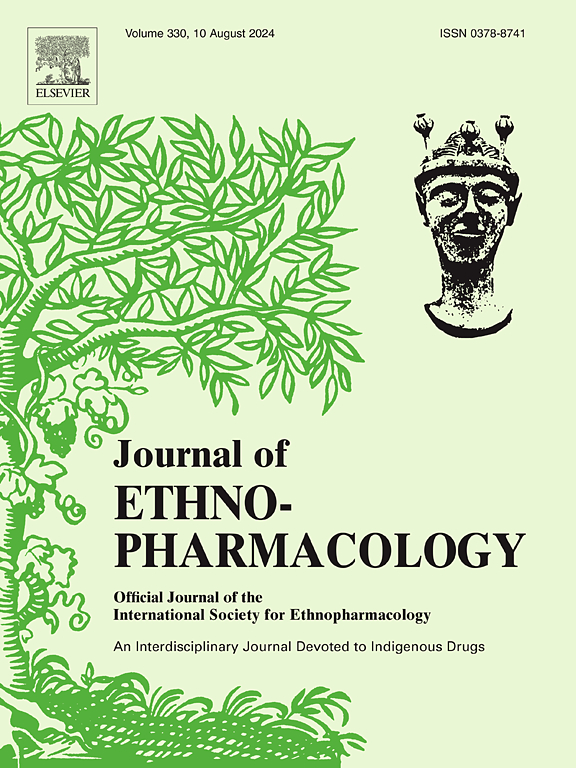益母草中木犀草素及其类似物木犀草素-7-甲基醚的勘误表。通过抑制肿瘤进展位点2,抑制芳香酶介导的雌激素生物合成减轻多囊卵巢综合征[J]。Ethnopharmacol。[331],[2024][118279]。
IF 4.8
2区 医学
Q1 CHEMISTRY, MEDICINAL
引用次数: 0
摘要
本文章由计算机程序翻译,如有差异,请以英文原文为准。
Corrigendum to “Luteolin and its analog luteolin-7-methylether from Leonurus japonicus Houtt. Suppress aromatase-mediated estrogen biosynthesis to alleviate polycystic ovary syndrome by the inhibition of tumor progression locus 2” [J. Ethnopharmacol. (331), (2024) 118279]
求助全文
通过发布文献求助,成功后即可免费获取论文全文。
去求助
来源期刊

Journal of ethnopharmacology
医学-全科医学与补充医学
CiteScore
10.30
自引率
5.60%
发文量
967
审稿时长
77 days
期刊介绍:
The Journal of Ethnopharmacology is dedicated to the exchange of information and understandings about people''s use of plants, fungi, animals, microorganisms and minerals and their biological and pharmacological effects based on the principles established through international conventions. Early people confronted with illness and disease, discovered a wealth of useful therapeutic agents in the plant and animal kingdoms. The empirical knowledge of these medicinal substances and their toxic potential was passed on by oral tradition and sometimes recorded in herbals and other texts on materia medica. Many valuable drugs of today (e.g., atropine, ephedrine, tubocurarine, digoxin, reserpine) came into use through the study of indigenous remedies. Chemists continue to use plant-derived drugs (e.g., morphine, taxol, physostigmine, quinidine, emetine) as prototypes in their attempts to develop more effective and less toxic medicinals.
 求助内容:
求助内容: 应助结果提醒方式:
应助结果提醒方式:


